How Long Does HVAC Last?
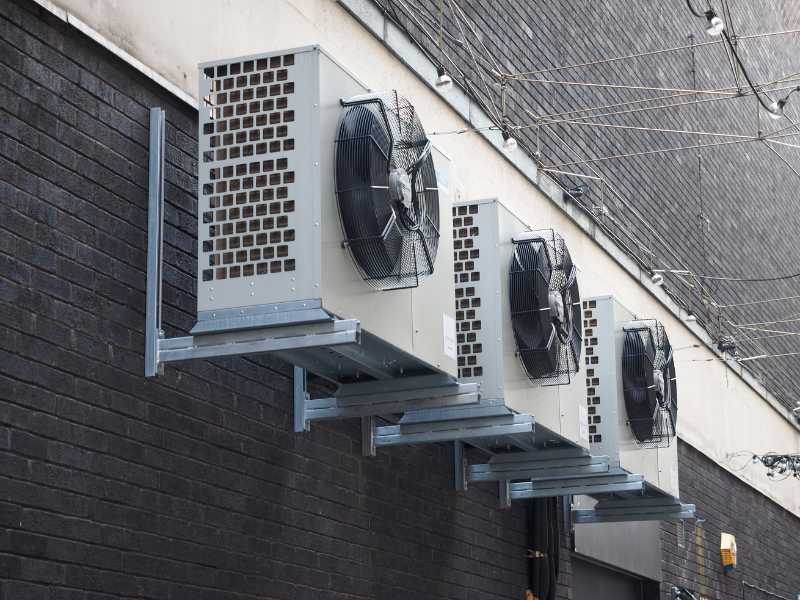
Is your home’s heating and cooling system getting old? You might be wondering how long it will last. HVAC systems are important for keeping our homes comfortable, but they don’t last forever. Typically, HVAC systems have a lifespan of 15 to 25 years. However, this can vary widely based on the type of system and several other factors.
In this article, we’ll talk about how long different HVAC systems usually last. We’ll also look at things that can make them last longer or wear out faster. You’ll learn about signs that show your system might need to be replaced soon.
We’ll share some easy tips to help your HVAC system last as long as possible. This can save you money and keep your home cozy. Whether you have a new system or an older one, this information will help you understand what to expect.
Understanding HVAC Systems
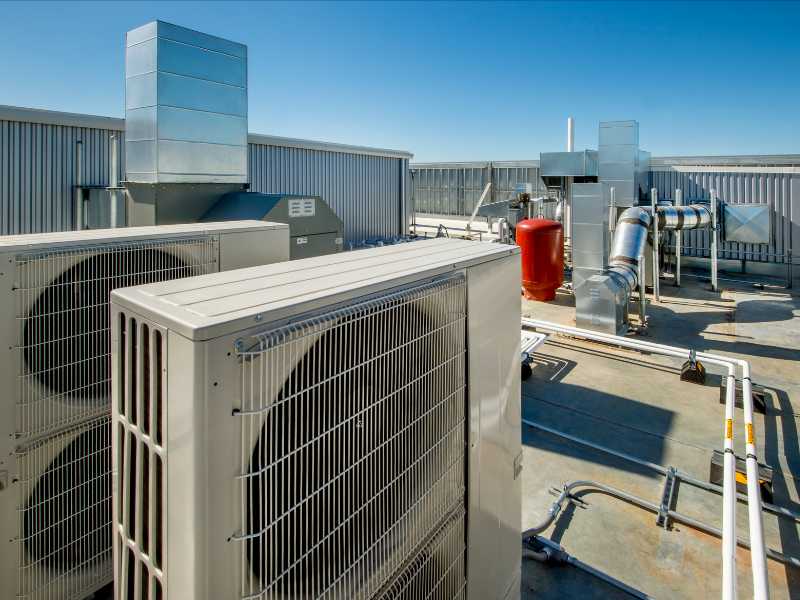
Heating, Ventilation, and Air Conditioning (HVAC) systems are crucial for ensuring indoor comfort and maintaining a healthy living environment. HVAC systems include a variety of components such as air conditioners, heat pumps, gas furnaces, oil furnaces, and steam boilers.
Each type of HVAC system regulates the temperature, humidity, and indoor air quality within homes and businesses. By understanding the different types of HVAC systems and their functions, you can better appreciate their importance and the factors that influence their lifespan.
Average Lifespan of HVAC Systems
The lifespan of HVAC systems can vary widely depending on several factors, including the type of system, usage, and maintenance practices. Here is a general overview of the average lifespan for common HVAC components:
- Air Conditioners: Typically last between 10 to 15 years.
- Heat Pumps: Usually have a lifespan of 10 to 15 years.
- Gas Furnaces: Can last from 15 to 20 years.
- Oil Furnaces: Also have a lifespan of 15 to 20 years.
- Steam Boilers: Often last between 15 to 30 years.
Several factors can influence the average lifespan of HVAC systems, including the quality of installation, brand and model, frequency of use, and maintenance practices. Understanding these factors can help you make informed decisions about your HVAC system and plan for replacements when necessary.
Factors Affecting HVAC Lifespan
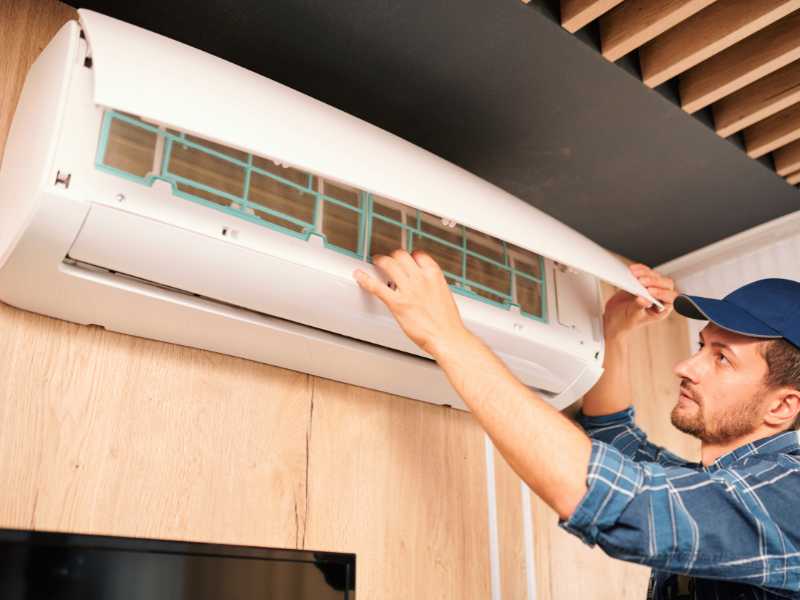
Regular Maintenance
One of the most critical factors affecting the lifespan of HVAC systems is regular maintenance. Routine AC maintenance helps ensure that all components are functioning correctly and efficiently. This includes tasks such as changing air filters regularly, cleaning coils, and inspecting ductwork. Regular HVAC maintenance can prevent minor issues from escalating into major problems. They extend the life of your HVAC system.
Changing Air Filters Regularly
Air filters play a vital role in maintaining the efficiency and longevity of HVAC systems. Dirty or clogged filters can restrict airflow. They cause the system to work harder and potentially leading to premature wear and tear. It is essential to change air filters regularly to keep the system running smoothly and improve indoor air quality.
Energy Efficiency
Energy efficiency also impacts the lifespan of HVAC systems. High-efficiency systems tend to last longer because they operate more effectively and reduce strain on individual components. Investing in an energy-efficient system can save money on energy bills and extend the life of your HVAC equipment.
External Factors
External factors such as extreme heat, severe storms, and the overall insulation of your home can affect the lifespan of your HVAC system. Homes that are well insulated and protected from harsh weather conditions tend to have HVAC systems that last longer. Proper insulation reduces the workload on the system, while extreme weather can accelerate wear and tear.
ALSO READ: HOW MUCH IS A NEW HVAC SYSTEM?
Signs Your HVAC System Needs Replacement
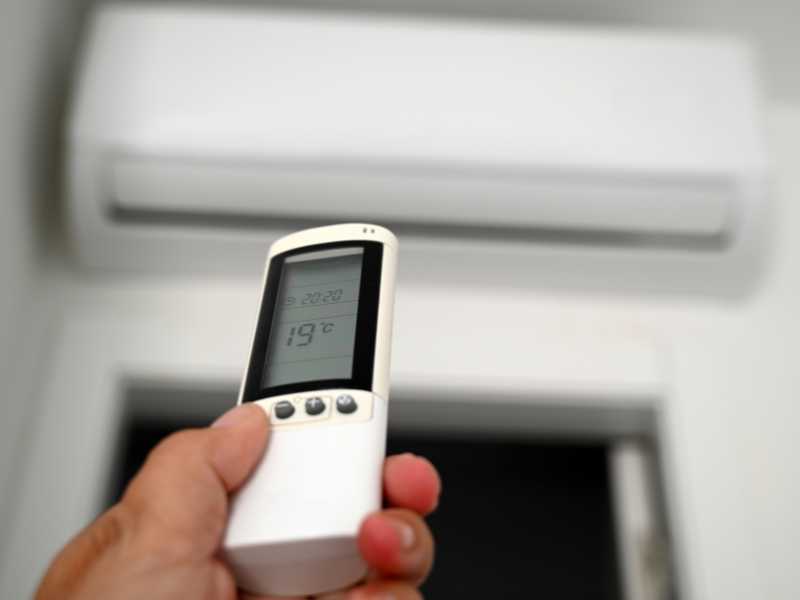
As HVAC systems age, they may start to show signs of decline. Recognizing these warning signs can help you determine when it is time to replace your HVAC system. Common indicators of an aging system include:
Frequent HVAC Repairs
If you find yourself scheduling frequent repairs, it may be more cost-effective to replace the system. Frequent repairs can indicate that the system is nearing the end of its lifespan and may soon require more significant, costly repairs.
Higher Utility Bills
If you notice your utility bills rising but your usage hasn’t increased, it could be a sign that your HVAC system is becoming less efficient. As systems age, they often have to work harder to provide the same level of comfort, leading to higher energy consumption and increased costs.
Uneven Temperatures
Uneven temperatures throughout your home can indicate that your HVAC system is struggling to distribute air evenly. This could be a sign of failing components or an overall decline in system performance.
Efficiency Issues
Efficiency issues such as longer run times and reduced airflow can also indicate that your HVAC system is nearing the end of its life. These problems can lead to increased energy usage and higher utility bills.
Monitoring Individual Components
It’s important to monitor individual components of your HVAC system for signs of wear and tear. Components such as the air conditioner, heat pump, and furnace should be inspected regularly to ensure they are functioning correctly.
Consulting a Qualified HVAC Contractor
When you notice any of these signs, it is important to consult a qualified HVAC contractor. A professional can assess the condition of your system and recommend whether it is time to replace your HVAC system.
Tips for Extending the Life of Your HVAC System
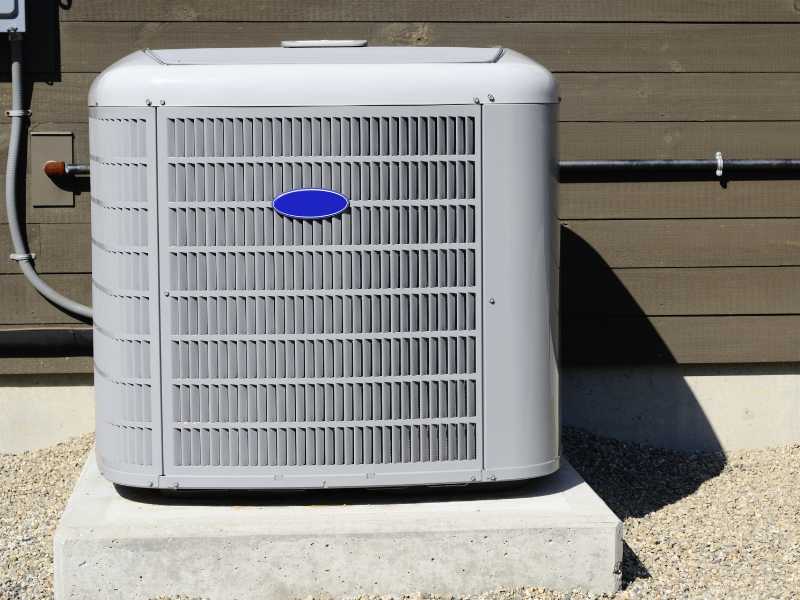
Extending the lifespan of your HVAC system requires a proactive approach to maintenance and care. Here are some essential tips to help you get the most out of your system:
Regular Maintenance Practices
Routine maintenance is crucial for keeping your HVAC system in top condition. Schedule annual maintenance with a professional HVAC technician to ensure all components are functioning correctly. Regular maintenance includes inspecting and cleaning the system, checking for potential issues, and performing necessary repairs.
Keeping Outdoor Units Clean
Outdoor units are exposed to the elements and can accumulate dirt, debris, and leaves. Regularly cleaning the outdoor unit helps maintain airflow and efficiency. Make sure to remove any obstructions and keep the area around the unit clear.
Using a Programmable Thermostat
A programmable thermostat can help reduce wear and tear on your HVAC system by optimizing temperature settings throughout the day. Set the thermostat to lower energy usage when you are not at home and to maintain comfortable temperatures when you are.
Ensuring Proper Insulation
A well-insulated home reduces the workload on your HVAC system, leading to a longer lifespan. Proper insulation helps maintain consistent indoor temperatures. It reduces the strain on your heating and cooling system.
Changing Air Filters Regularly
Air filters should be changed regularly to maintain airflow and efficiency. A dirty filter can cause the system to work harder, leading to increased wear and tear. Check your filters monthly and replace them as needed.
When to Replace Your HVAC System
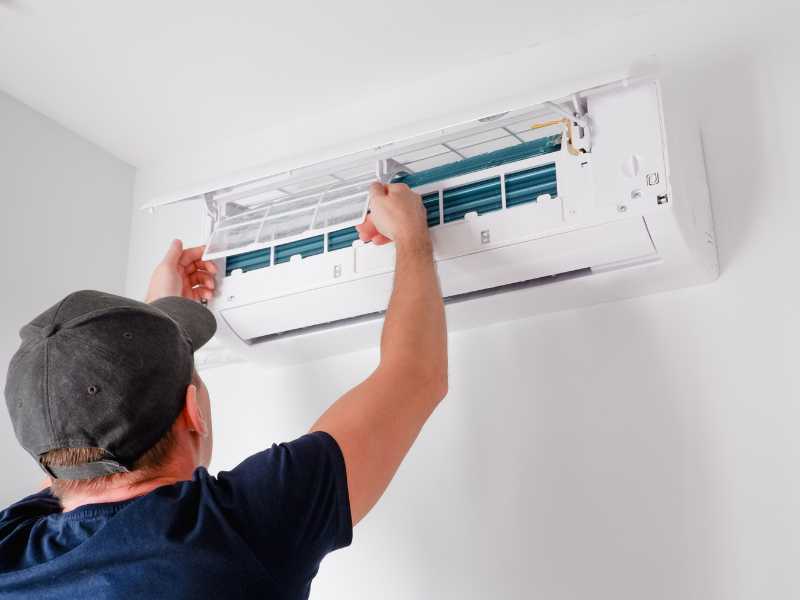
Knowing when to replace your HVAC system is important for maintaining comfort and energy efficiency in your home and business. Here are some factors to consider when determining if it’s time for a replacement:
Comparison of Repair Costs vs. Replacement Costs
If the cost of repairs is approaching or exceeds the cost of a new HVAC system, it may be more economical to replace the system. Frequent and costly repairs are a sign that the system is nearing the end of its lifespan.
Benefits of a New HVAC System
A new HVAC system offers several benefits, including improved energy efficiency, reduced energy bills, and enhanced comfort. Modern systems are designed to be more energy-efficient and environmentally friendly, which can lead to significant savings over time.
Impact on Home’s Air Quality and Energy Usage
A new HVAC system can improve indoor air quality and reduce energy usage. Older systems may struggle to maintain air quality, leading to potential health issues. Upgrading to a new system can enhance the overall air quality in your home.
Consulting with a Qualified HVAC Contractor
Before making a decision, consult with a qualified HVAC contractor. A professional can assess your current system and provide recommendations based on its condition and your specific needs. They can help you choose the right system for your home and ensure proper installation.
Choosing the Right HVAC System for Your Home
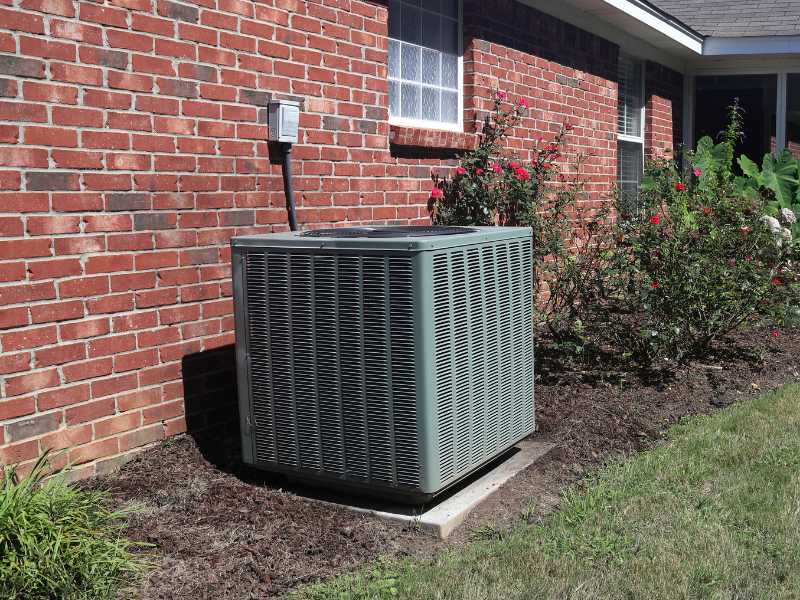
Selecting the right HVAC system for your home involves considering various factors to ensure optimal performance and efficiency. Here’s what to keep in mind:
Home Size and Insulation
The size of your home and the level of insulation play a significant role in determining the right HVAC system. A properly sized system will efficiently heat and cool your home without overworking the unit.
Climate and Local Weather Patterns
Consider the climate and local weather patterns when choosing an HVAC system. For instance, homes in extreme heat regions may benefit from high-efficiency air conditioning units, while those in colder climates may require robust heating systems.
Energy Efficiency Ratings
Energy efficiency ratings, such as SEER (Seasonal Energy Efficiency Ratio) for air conditioners and HSPF (Heating Seasonal Performance Factor) for heat pumps, assess the efficiency of the system. Higher ratings typically indicate greater efficiency, which can result in lower energy bills.
Consulting with a Qualified HVAC Contractor
A qualified HVAC contractor can provide valuable insights and recommendations based on your home’s specific needs. They can help you navigate different options, ensuring you choose a system that balances performance, efficiency, and cost.
The Impact of HVAC System Lifespan on Home Comfort and Efficiency
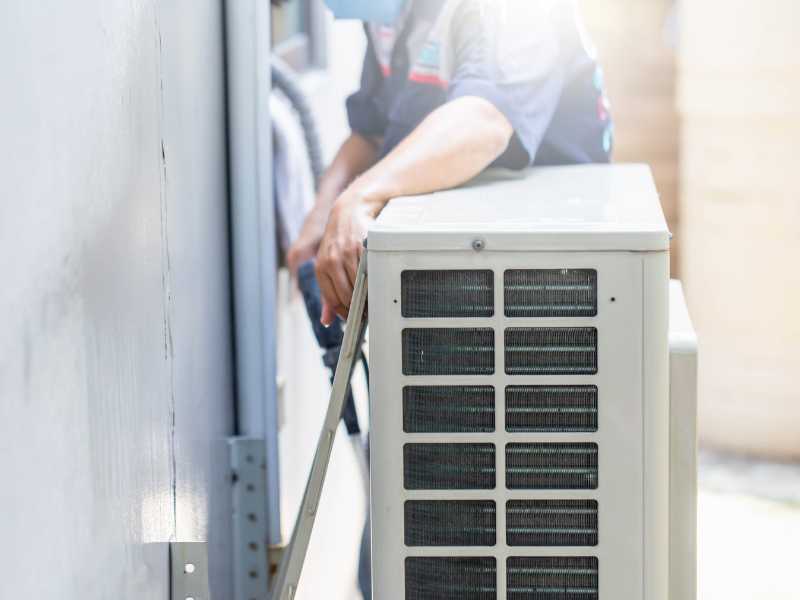
Knowing the average HVAC system lifespan is crucial for homeowners looking to maintain comfort and efficiency. Here’s why understanding how long HVAC systems last and when to replace individual components can make a significant difference:
Importance of Tracking HVAC System Longevity
Tracking the average life expectancy of different HVAC components—such as the air conditioner, heat pump, and furnace—can help you anticipate when replacement might be necessary. By understanding how the HVAC system runs, you can better plan for replacements and avoid unexpected breakdowns. This proactive approach ensures that your HVAC unit continues to provide consistent performance and comfort.
Benefits of Replacing Aging HVAC Components
As HVAC systems age, specific components like the compressor or blower motor may start to fail. Replacing these parts before they cause system-wide issues can enhance the efficiency and reliability of your HVAC unit. For instance, replacing an aging compressor or upgrading an old thermostat can lead to improved cooling and heating performance, ultimately saving on energy costs and improving overall home comfort.
Role of Proper Maintenance in Extending System Lifespan
Regular HVAC system maintenance plays a pivotal role in prolonging the life of your HVAC system. Regular maintenance not only helps in identifying potential issues early but also ensures that each component of your system—whether it’s the heating oil furnace or the air source heat pumps—operates efficiently. By adhering to a regular maintenance schedule, you can address minor issues before they impact the system’s performance, thus extending its overall lifespan.
Evaluating Replacement Needs for HVAC Units
Understanding the average HVAC lifespan helps in evaluating when it’s time to replace your HVAC unit. For example, if your HVAC unit is approaching the end of its average life expectancy and is showing signs of inefficiency, it might be more cost-effective to replace it rather than invest in frequent repairs. This decision ensures that you continue to benefit from improved energy efficiency and reliable performance.
In Summary
Understanding the lifespan of your HVAC system and the factors that influence it is crucial for maintaining a comfortable and energy-efficient home. Regular maintenance, timely AC repairs, and informed decisions about replacements can extend the life of your HVAC system, save money on energy bills, and improve indoor air quality. By following the tips outlined in this guide and consulting with qualified professionals, you can ensure your HVAC system continues to perform optimally for years to come.
If you’re concerned about the condition of your HVAC system or it’s time for a replacement, contact a local HVAC technician for an inspection. Schedule regular maintenance to keep your system running efficiently and consider a free consultation or maintenance check for new clients to ensure your home remains comfortable and energy-efficient.
